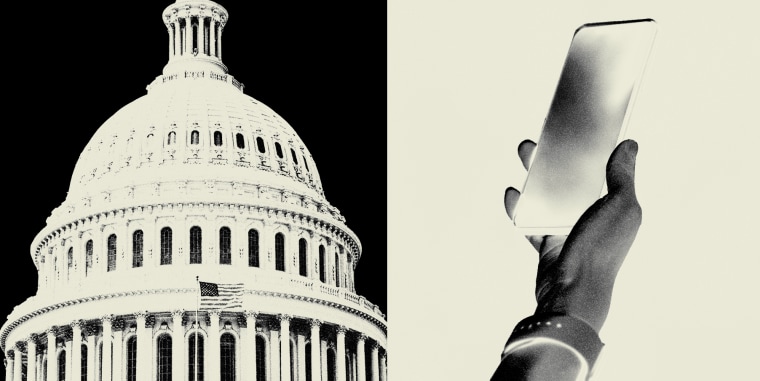The Biden administration, which correctly realizes that misinformation and disinformation are threats to our public health and to democracy itself, has worked with social media companies to support and increase those platforms’ content moderation activities. But this summer, Republican attorneys general from Missouri and Louisiana and four people who said social media companies had deleted some of their content sued the administration and alleged its activities were unconstitutional.
The attorneys general claimed that Biden’s administration was working with social media companies to silence speech protected by the First Amendment.
The attorneys general claimed that the Biden administration was working with social media companies to silence speech protected by the First Amendment, a contention consistent with a broader argument made by many conservatives who say social media companies are censoring or restricting their speech because it is unpopular. And they got a federal judge, Terry A. Doughty of the Western District of Louisiana, who largely agreed with them.
But Doughty’s temporary injunction — which would have largely prevented executive agencies, including the FBI, the Department of Homeland Security, the Centers for Disease Control and Prevention, the Department of Health and Human Services and the Justice Department, from even making social media companies aware that users might be violating those companies’ rules — was so overly broad that three conservative members of the 5th Circuit Court of Appeals, all appointed by Republican presidents, just trimmed it. The injunction against working with social media companies now applies only to the White House, the CDC, the FBI and the surgeon general. The appellate judges found that the other executive agencies covered by the original injunction, like the State Department, the Justice Department, the Department of Health and Human Services and the Department of Homeland Security, didn’t act to coerce social media companies to make certain content moderation decisions.
That’s not a victory, though, because the 5th Circuit wrongly upheld key and harmful parts of Doughty’s temporary injunction. The appellate judges concluded that some members of the Biden administration engaged in threats and coercion to get social media companies to restrict certain content that the administration didn’t like.
This is a dangerous precedent. If and when this case is appealed to the U.S. Supreme Court, the justices should take it and clarify that the government has plenty of breathing room when it comes to working with social media companies to prevent our discourse from being polluted with falsehoods.
Let’s be clear. The First Amendment guards against the government’s picking who gets to speak or determining which topics we get to speak about. That would be content-based restriction, which is presumptively unconstitutional. If any presidential administration told a private group not to speak about a certain topic, such as voter fraud or Covid, that communication would violate the First Amendment. But the Biden administration has denied any such allegations, claiming instead that it has pushed social media companies to adhere to their own rules about content.
The Supreme Court should clarify that the government has plenty of breathing room when it comes to working with social media companies to prevent our discourse from being polluted with falsehoods.
The line between pressuring social media companies to adhere to their content rules and coercing them to silence certain speakers or speech may be thin, but it does exist. And the risks to all of us of preventing the administration from communicating with companies about false speech are very real.
While our government should and must work to protect the public from false information, it must do so in a way that respects our First Amendment freedoms. But the First Amendment doesn’t require — as the plaintiffs, the two attorneys general and the federal judge appear to believe — that the government stand silent and impotent in the face of misinformation and disinformation.
Misinformation (defined as information that is false) and disinformation (defined as deliberate lies) threaten the body politic and the human body. Think, for example, of the misinformation and disinformation denying even the existence of the novel coronavirus or the lies that the 2020 election were stolen that preceded a deadly attack on the U.S. Capitol on Jan. 6, 2021.
The Biden administration needs to be able to work with social media companies to protect us all by tamping down false speech. That’s not government censorship. That’s not ignoring the First Amendment. That’s the government wisely addressing a threat. It’s a job of our government to combat false information, especially that which is related to Covid-19 and the integrity of our elections.
If you think the moon landing was fake or the Earth is flat, your beliefs are unlikely to have significant negative consequences and therefore most likely wouldn’t contravene social media content rules. In these cases, it’s not the government’s job to intervene. But if you post pernicious falsehoods and lies on social media that threaten not just the health of our democracy, but also the health of our bodies, then at the very least the government can point that out to social media companies hosting your lies. And enjoining government actors from saying so isn’t a win for the people; it puts them in more peril.

